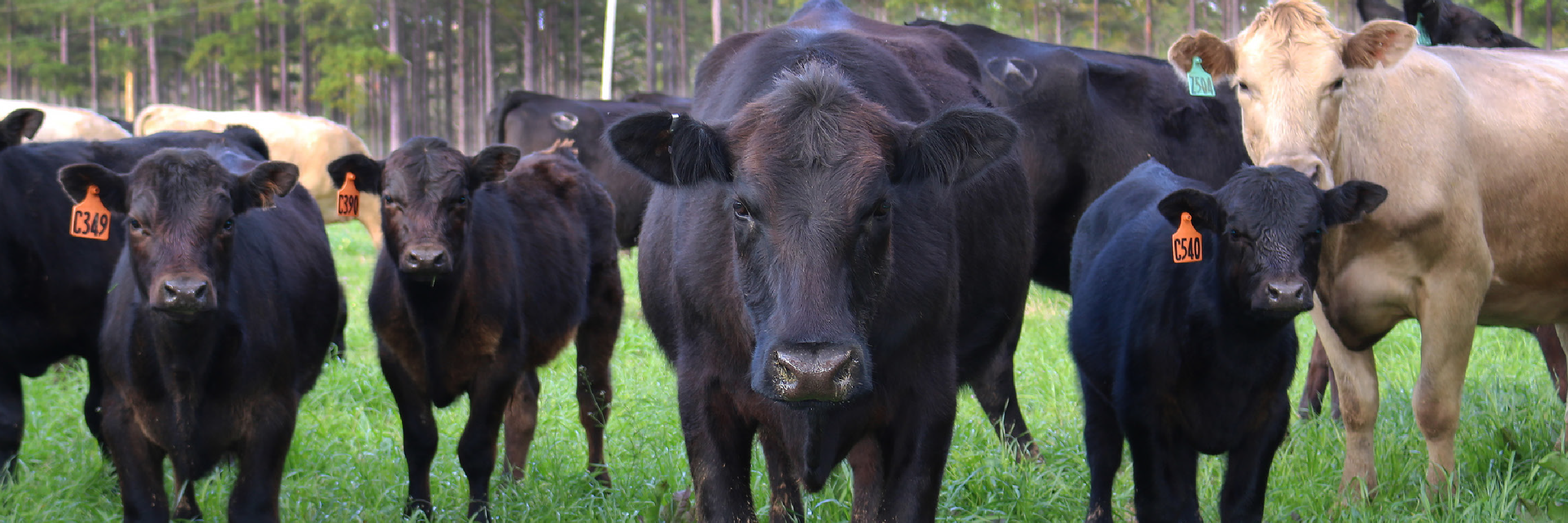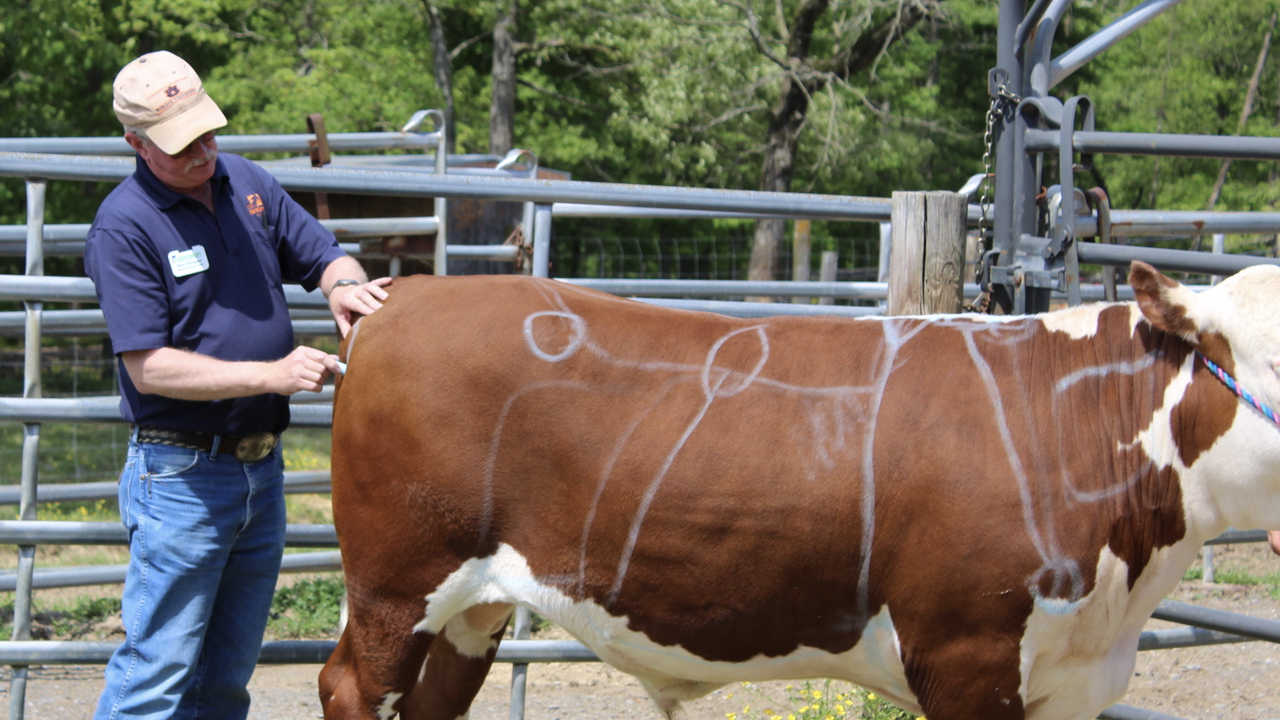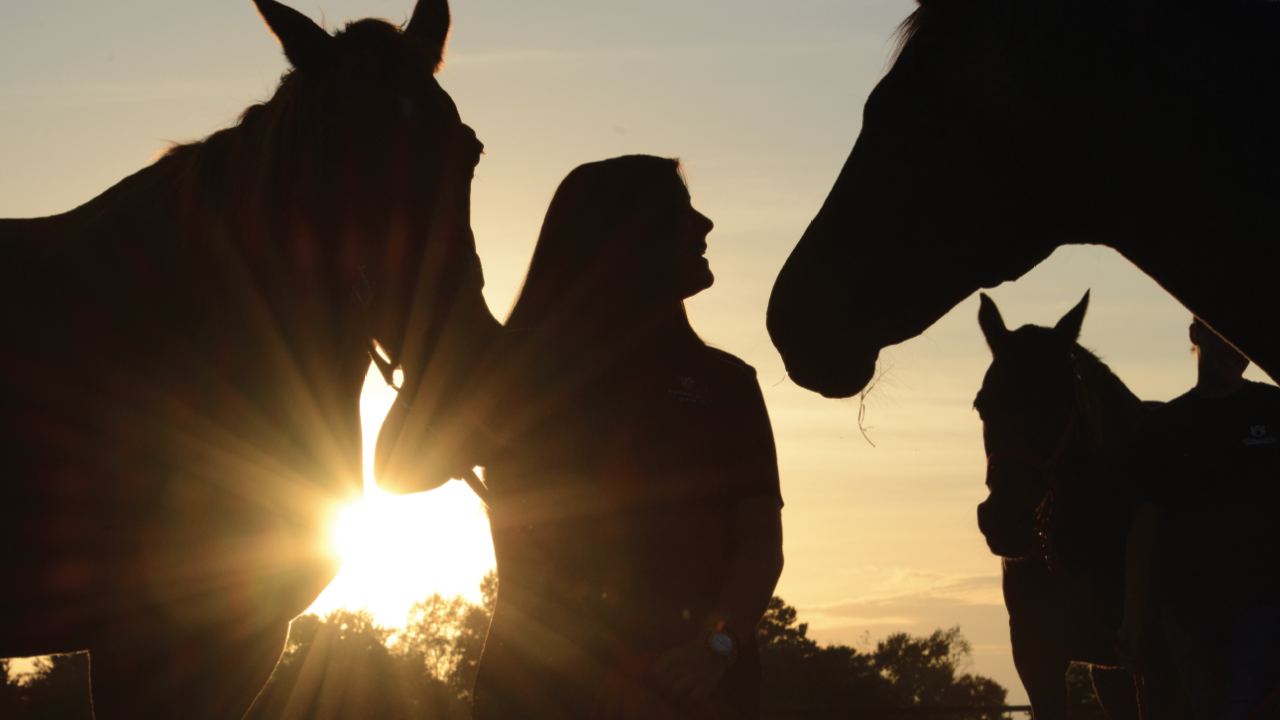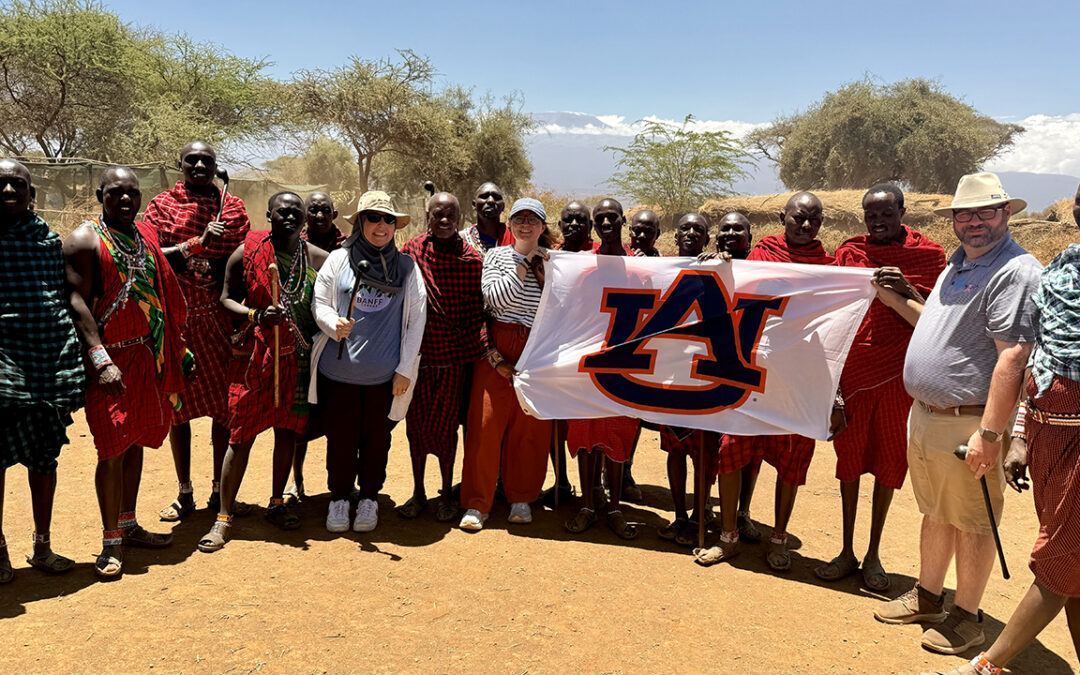
Department of
Animal Sciences
Safer Foods and Greater Human and Animal Health
The care and management of domestic animals—providing food, fiber, and recreation for humans—create a wide range of career opportunities for graduates in animal science. Our program will prepare you for a career in veterinary medicine, medicine, equine science, food safety, production and related areas. The program is also excellent preparation for graduate studies in fields such as animal nutrition, biochemistry and molecular biology, microbiology, growth biology, meat science and muscle biology, breeding and genetics, and reproductive biology.

Finding Your Life’s Work
The Department of Animal Sciences is home to hundreds of students from a variety of backgrounds seeking a broad range of career opportunities. As a student here, you can choose from two different programs, based on your personal interests and career plans: Animal Sciences – Pre-Veterinary & Biosciences and Allied Industries.
Majors
TRACKS TO CHOOSE FROM
PRE-VETERINARY AND ANIMAL BIOSCIENCES: The scientific foundation for admission to veterinary, medical, dental and related graduate and professional programs.
ALLIED INDUSTRIES: A breadth of study and flexible curriculum in animal production and agribusiness.
Minors
The Department of Animal Sciences is charged with enhancing the economic, social and cultural development of Alabama through instruction of students in the increasingly complex area of animal agriculture and related life sciences. The minor in Animal Sciences allows non-majors to acquire a broad body of knowledge related to animal agriculture that will complement subject matter learned in their major and improve their competitiveness in the broader field of agriculture.
Graduate Degrees
The Department of Animal Sciences offers master’s (M.S., M.Ag.) and doctoral (Ph.D.) degrees in Animal Sciences. Our graduate degree programs in animal sciences provide advanced education and technical training that prepare students for public- and private- sector careers related to animal science and technology, food safety, animal biotechnology and agribusiness as well as university-level careers in research and teaching. Interdepartmental minor programs in cell and molecular biosciences, ecology and environmental sciences also are available.
Feature
Majors & Minors
Graduate Degrees & Programs
ANSC Faculty
ANSC Staff
Affiliates, Emeriti & Visiting Guests
Graduate Students
ANSC Research
ANSC Outreach
Subscribe to the ANSC Newsletter
Path to the Plains
Apply Now
Contact
Animal Sciences Dept.
210 Upchurch Hall
Auburn Univ, AL 36849
(334) 844-1521
Follow Us
Our Students
Our strong commitment to the responsible, humane care and nutrition of all research animals is recognized internationally, and our animal sciences students are vital to that process.
Hands-on Experience
As a student in Auburn University’s Department of Animal Sciences, you’ll have many opportunities to gain experience outside the traditional classroom, including study abroad tours, internships, team competitions, student organizations and more.
Student Clubs
College & University Student Clubs
Student clubs and organizations are an excellent way to make new friends and become a part of Auburn University’s campus life. Auburn offers 300 student clubs, 23 of which are in the College of Agriculture.
Learn more about our Clubs & Organizations
Competitive Teams
Opportunities to join competitive teams and attend student tours are excellent ways to engage with your College of Agriculture family while building new connections within the industry. For more information on these programs, please contact the following:
- Auburn University Livestock Judging Team – Jesse Henson | Facebook
- Meats Judging Team – Tessa Barrett | Facebook
- Forage Bowl Team – Leanne Dillard
- Academic Quadrathlon – Brandon Smith
- IHSA Equestrian Team – Lisa Dorsey
High Impact Experiences
Study Abroad
ANSC Study Abroad Opportunities
Study-abroad opportunities, such as the four-week summer equine studies program in England, will enable you to learn about the physiology of the horse as an athlete and enjoy English riding lessons and day trips to English equestrian events.
Visit the Study Abroad page for more information.
Student Research
ANSC Undergrad & Graduate Student Research
The Animal Science Department’s undergraduate and graduate research programs offer you real-world, hands-on, working knowledge from corporate to laboratory settings, both on and off campus.
Read more about our Student Research.
Internships
Students who are highly motivated and interested about careers in agriculture should apply for an internship. The college offers a range of student internships, career services and job opportunities.
Find out more by visiting our Career Discovery page.
Expertise & Research Interests
Research in the Department of Animal Sciences is in collaboration with the College of Agriculture and Alabama Agricultural Experiment Station’s research focus areas.
FACULTY RESEARCH AREAS
ANIMAL & FORAGE PRODUCTION SYSTEMS
- Dr. Leanne Dillard (Forages) – Introduction of annual forages into perennial systems to extend the grazing systems and increase forage quality. Integrated crop-livestock systems and their effects on the agroecosystem.
- Dr. Paul Dyce (Reproductive Biology) – Studying the ability of fetal porcine and postnatal mouse skin isolated stem cells to form germ cells under various in vitro culture conditions.
- Dr. Courtney Heaton (Equine Nutrition, Physiology) – Past research focused on: Dietary starch and glycogen replenishment, Equine fecal microbiome, Probiotic and prebiotic supplementation.
- Dr. Carolyn Huntington (Lecturer) – Undergraduate Program Officer for the Department of Animal Sciences.
- Dr. Kim Mullenix (Beef Systems) – Optimizing beef production systems through forage utilization and co-product supplementation, soil-plant-animal interactions in beef cattle systems.
- Dr. Rishi Prasad (Livestock Production, Nutrition) –Development of best management practices for nutrients (N&P) in crop and animal systems aimed to protect the water, soil and air quality, variable rate manure and fertilizer prescription technology for crops, mineralization, greenhouse gas.
- Dr. Soren Rodning (Herd Health) – Livestock reproductive management and herd health.
- Dr. Marko Rudar (Nutrition) – Protein and amino acid nutrition and metabolism in swine.
ANIMAL NUTRITION
- Dr. Leanne Dillard (Forages) – Introduction of annual forages into perennial systems to extend the grazing systems and increase forage quality. Integrated crop-livestock systems and their effects on the agroecosystem.
- Dr. Carolyn Huntington (Lecturer) – Undergraduate Program Officer for the Department of Animal Sciences.
- Dr. Kim Mullenix (Beef Systems) – Optimizing beef production systems through forage utilization and co-product supplementation, soil-plant-animal interactions in beef cattle systems.
- Dr. Marko Rudar (Nutrition) – Protein and amino acid nutrition and metabolism in swine.
MUSCLE FOODS SCIENCE, TECHNOLOGY & SAFETY
Investigations in muscle tissue biology, new and innovative food products, and novel processing technologies as well as the safety of foods of animal origin.
- Dr. Aeriel Belk – Research focuses on the relationship between meat and food products, the production environment, and the animal host by investigating the microbial communities associated with them. She is particularly interested in how the native microbiome of a product, animal, or environment can impact the ability of pathogens to grow or persist on a food product.
- Dr. Don Mulvaney (Production, Beef Systems, Food Science) – Research interest is in the discovery of nutritional, pharmacological and endocrinological strategies for altering embryonic development of muscle tissue with the intention of improving the efficiency of postnatal growth of offspring and ultimate profitability for producers.
- Dr. Jason Sawyer (Production, Packaging, Food Science) – Capturing the qualities and characteristics of postmortem changes that occur in fresh and cooked meat products. Specific emphasis is placed on shelf-life stability as it pertains to surface color, packaging methodology, and sensory taste.
REGULATORY BIOLOGY
Investigations into fundamental mechanisms of cell and molecular biology regulating animal life processes and protein production.
- Dr. Priyanka Banerjee (Biochem & Biotech) – Investigating the molecular interactions between maternal hormones, their regulation by trophoblasts, maternal immune responses, and pregnancy establishment in bovines.
- Dr. Terry Brandebourg (Genetics) – Investigating what gene is responsible for intramuscular fat deposition.
- Dr. Paul Dyce (Reproductive Biology) – Studying the ability of fetal porcine and postnatal mouse skin isolated stem cells to form germ cells under various in vitro culture conditions.
- Dr. Don Mulvaney (Production, Beef Systems, Food Science) – Research interest is in discovery of nutritional, pharmacological and endocrinological strategies for altering embryonic development of muscle tissue with intention of improving the efficiency of postnatal growth of offspring and ultimate profitability for producers.
- Dr. Marko Rudar (Swine Nutrition, Metabolism, Biology) – Research is to enhance the capacity of piglets to adapt to weaning-induced nutritional stress by targeting sulfur amino acid nutrition.
- Dr. Jacek Wower (Genetics) – Lab is focused on the architecture and function of TmRNP on the ribosome. Dr. Wower’s research team is also working on the development of novel antiviral drugs against Foot-and-Mouth Disease Virus (FMDV) and Bovine Viral Diarrhea Virus (BVDV). His team is also investigating biosensing of non-coding RNA using nucleic acid based technology. Other research in the Wower lab focuses on nucleic acid aptamer particulate drug delivery.


